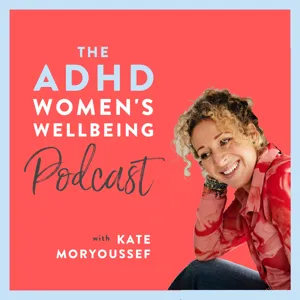Podcast Summary
Importance of accurate ADHD evaluation: Proper diagnosis requires stopping medication, considering family history, and thorough neuropsychological testing to determine severity and rule out mimicking disorders.
It's essential to obtain an accurate evaluation for ADHD due to the numerous symptoms and disorders that mimic it. Doctor Nigro, a psychologist, emphasizes this point frequently, especially during neuropsychological evaluations. He advises patients to stop taking stimulant medication before testing to ensure a true diagnosis and determine the severity level. ADHD is a neurodevelopmental disorder with a strong genetic predisposition and high comorbidity with bipolar disorder. Thus, a thorough family history is crucial for an accurate diagnosis. The scarcity of resources for mental health conditions highlights the importance of proper evaluations and diagnoses.
Subjective reports of attentional problems may not accurately reflect cognitive abilities, especially in older adults.: Healthcare providers must use objective tests and clinical assessments to accurately diagnose ADHD and avoid misdiagnosis due to overlap of symptoms with other conditions and demand for stimulant medication.
While subjective reports of attentional problems can be valuable, they may not accurately reflect an individual's cognitive abilities. The older population, in particular, may underreport or mischaracterize their symptoms due to cultural norms or stigma. ADHD is often misdiagnosed due to the overlap of symptoms with other conditions like depression, bipolarity, OCD, and pure processing disorders. Moreover, there is a strong desire for stimulant medication, which can help improve focus and concentration, leading to a demand for these medications, even if they are not prescribed for ADHD. It is crucial for healthcare providers to conduct thorough evaluations using a combination of objective tests and clinical assessments to make accurate diagnoses and provide effective treatment plans.
Self-report scales aren't enough for ADHD diagnosis: A full neuropsychological evaluation is necessary for accurate ADHD diagnosis, as self-report scales can be influenced by factors like depression, anxiety, and lack of interest.
Self-report scales, such as those used to diagnose Attention Deficit Hyperactivity Disorder (ADHD), should not be the sole basis for a diagnosis. Depression, anxiety, and lack of interest can adversely impact the reliability and validity of these reports. A full neuropsychological evaluation is crucial to accurately diagnose ADHD and assess attentional systems. Misconceptions exist about psychiatric medications for ADHD, which can help manage symptoms but do not teach necessary skills. People with ADHD, particularly children and adolescents, have deficits in social, emotional, and motor skills, making it essential to consider their developmental age when evaluating their abilities. The relief or disappointment some people may feel upon receiving preliminary findings should not overshadow the importance of a comprehensive diagnostic process.
Distinguishing Different Types of ADHD: Misdiagnosis of ADHD can lead to missed opportunities for proper treatment and social isolation. Neuropsychological testing is crucial for accurate diagnosis, as self-reported symptoms may not provide a complete picture.
Attention Deficit Hyperactivity Disorder (ADHD) is a complex condition with different presentations, and it's crucial to distinguish between them. The inattentive type, which can go unnoticed due to the lack of overt symptoms, often leads to internalizing disorders such as depression and anxiety. On the other hand, the hyperactive and combined types can result in externalizing disorders like oppositional defiant disorder, conduct disorder, and intermittent explosive disorder. The speaker emphasizes the importance of neuropsychological testing for accurate diagnosis, as self-reported symptoms may not provide a complete picture. Misdiagnosis can lead to unnecessary labels, missed opportunities for proper treatment, and social isolation. It's essential to recognize the discrepancies between self-reported symptoms and objective assessments to ensure children and adolescents receive the appropriate support and interventions.
Medications for ADHD don't teach essential skills: Medications for ADHD can help manage symptoms but don't teach essential skills like organization and time management. Early identification and intervention are crucial to address root causes and teach necessary skills.
While medications like Adderall, Vyvanse, and Concerta can be effective for managing symptoms of ADHD, they do not teach essential skills for organization, time management, or homework completion. Misconceptions about these medications leading to improved academic performance and popularity among teenagers can contribute to their misuse and abuse. Early identification and intervention, including assessing for potential subclinical symptoms of ADHD and other disorders like bipolarity, are crucial. The psychological dependence on stimulant medications is a concern, especially in the United States, where there's a belief that everyone has ADHD. The increasing amount of information and technology can contribute to the earlier manifestation of psychiatric conditions. Ultimately, addressing the root causes and teaching necessary skills can lead to more effective and sustainable solutions for individuals dealing with ADHD or similar conditions.
Importance of in-person observations and neuropsychological evaluations for accurate ADHD diagnosis: Proper ADHD diagnosis involves observing individuals in person and conducting neuropsychological assessments to identify underlying conditions, like processing speed deficits, and guide effective interventions.
While ADHD is a legitimate disorder, it often coexists with other conditions, and a proper diagnosis requires more than just relying on symptom rating scales. The speaker, who has experience in diagnosing ADHD, emphasizes the importance of observing people in person and conducting neuropsychological evaluations to assess for conditions like processing speed deficits. These evaluations can help identify the root cause of attentional issues and guide appropriate interventions. The speaker also notes that ADHD may not be diagnosed until certain life transitions when demands increase, and structure plays a crucial role in managing it. However, they acknowledge the limitations of resources and encourage the use of rating scales as a starting point, but not as the sole basis for a diagnosis.
Subjective rating scales for ADHD are insufficient for diagnosis: Proper diagnosis requires a detailed history, clinical interview, and standardized tests to distinguish ADHD from other conditions, ensure accuracy, and rule out secondary gains. Early identification and appropriate treatment can be transformative.
While subjective rating scales can provide some insight into ADHD, they should not be the sole basis for diagnosis. A proper diagnosis requires a detailed history, a structured clinical interview, and standardized tests. These assessments can help distinguish ADHD from other conditions, ensure accurate diagnosis, and rule out secondary gains. Early identification and appropriate treatment, such as medication or therapy, can be transformative for individuals with ADHD. It's essential to remember that life events and stressors can impact attention and concentration, making a thorough evaluation crucial. The stigma surrounding ADHD is less than that of other psychiatric conditions, but it can still significantly impact one's life. Therefore, seeking a professional evaluation is crucial to receive an accurate diagnosis and begin the path to improvement.
People may intentionally misrepresent their condition during evaluations: Limited session times and intentional misrepresentation can hinder accurate diagnoses and effective treatment plans. Confirm a diagnosis and receive a thorough evaluation for optimal mental health benefits.
While most people aim to do their best during psychological evaluations, there are some who may intentionally present themselves as more impaired than they truly are. This can hinder accurate diagnoses and effective treatment plans. A full evaluation by a mental health professional is essential for proper diagnosis and treatment. Unfortunately, limited session times imposed by insurance companies can hinder comprehensive assessments. It's crucial to confirm a diagnosis and receive a thorough evaluation to maximize the benefits of mental health treatment. Remember to reach out to mental health professionals for support, and stay tuned for more insights on Psychology Unplugged.





